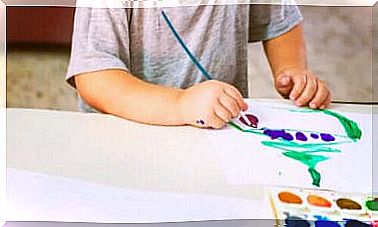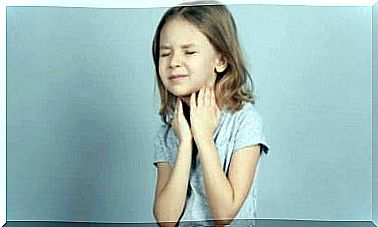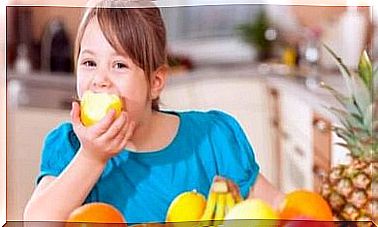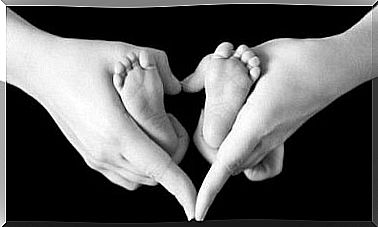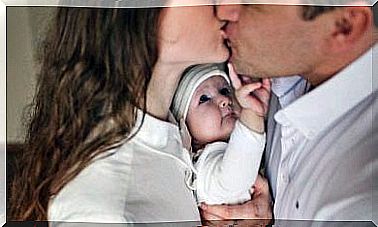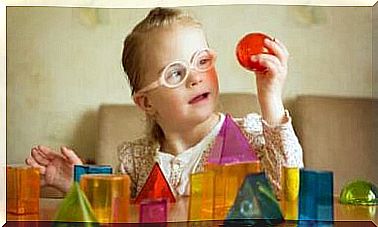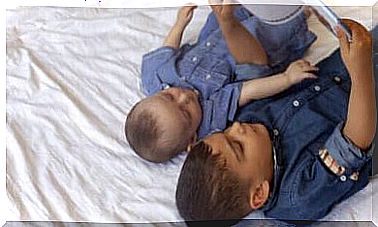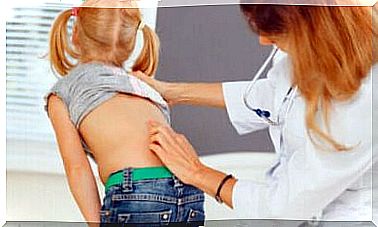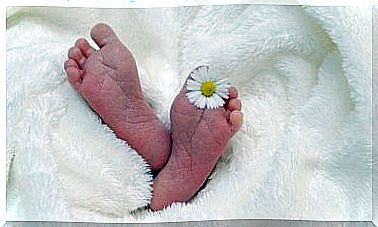What Three Year Olds Understand When We Talk
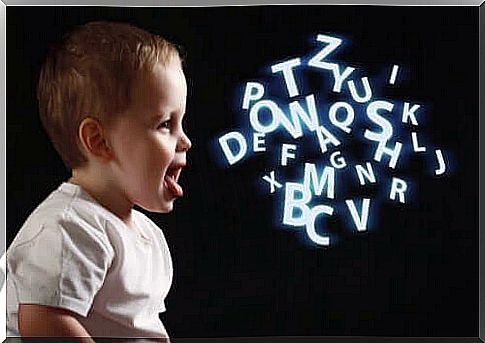
By age three, children have about 900 words or more in their expressive vocabulary. You can see that they can already combine three or four words in a sentence. Well, with this great repertoire in their vocabulary, what do three-year-olds understand when we talk to them?
We know that understanding comes before expression. Thus, it is estimated that three-year-olds can understand twice their expressive vocabulary. At the age of three, they understand more than some adults think, even though they still have problems with their tongues and are difficult for us to interpret.
Language development from birth to three years
We must make it clear that language development is not the same for all children of the same age. That is, there are variations. These have to do with individual and environmental factors, which can alter the rate of language acquisition and development at different stages. Of course they are always within reasonable limits.
The stages children go through from birth to acquiring the basic structures for language learning are as follows:

- Prelinguistic age (0-12 months). At the end of the first year, the children will say their first words; “Mom and dad”. As for understanding, they hear their name and can understand simple commands such as “give me” and “grab”.
- Language stage (12-18 months). At this stage, they begin a complex process of language development. They can pronounce about 20 words and combine two. “Mama give”, “Dada come”, etc. Their understanding grows and when asked they carry objects from one place to another.
- Telegraphic language (18 months-3 years). At the age of two, they can pronounce about 250 words. Here they begin to understand questions and increasingly simple instructions.
- Complex sentences (3-6 years). At the age of three, children already master about 900 words and by the age of six about 2500 words. At the age of six, they have already acquired the basic structures for language learning.
Extended language at age three
From the age of three, children begin to participate and interact in new contexts, such as school or other recreational activities. This allows them to produce more and therefore understand more.
From three to four years, the child’s understanding and expressive language will improve a lot. Over the course of this year, they will learn more vocabulary. Kids go from about 900 words to about 1200.
Of course, these figures are approximate. As we said before, not all children develop at the same rate. Now the evolution and acquisition in the development of oral and extended language depend on two factors namely individual and environmental factors.
- Individual factors. These refer to physical and psychological maturation. If the child has a developmental delay or a neurological problem, this has consequences for language development and language comprehension. Therefore it will be slower.
- Environmental factors. These have to do with the context and the environment in which the child operates. For example, this could be the arrival of a sibling or a lack of incentives, attention and affection will negatively affect the child’s communication, linguistic and cognitive skills. development.
Therefore, the family plays a fundamental role in the development of oral and extended language in the early years of the child.
Providing communicative situations to our little one is essential. Through conversations during games, walks, reading, daily tasks, etc., we help them learn visual, auditory, tactile, motor, cognitive and social skills. These are all important for language development.
What do three-year-olds understand when we talk to them?
As we said before, from three to four years, a child’s understanding and expressive language will greatly increase. At this age, children can understand much more than they can express. So three-year-olds can:
- Answer when you call them.
- Understand and answer questions.
- Understand and execute commands.
- Identify some colors and the names of some shapes, such as circles and squares.
- Knowing who we mean when we talk about relatives: brother, grandmother, aunt, cousins.
- Begin to understand simple time-space relationships, such as morning and night.
- Master and understand general general words (dog, cat, house, car, apple) but not yet the most general categories.
- Begin to understand abstract concepts such as beautiful, ugly, far, near.
- Follow the story of a story without needing photos
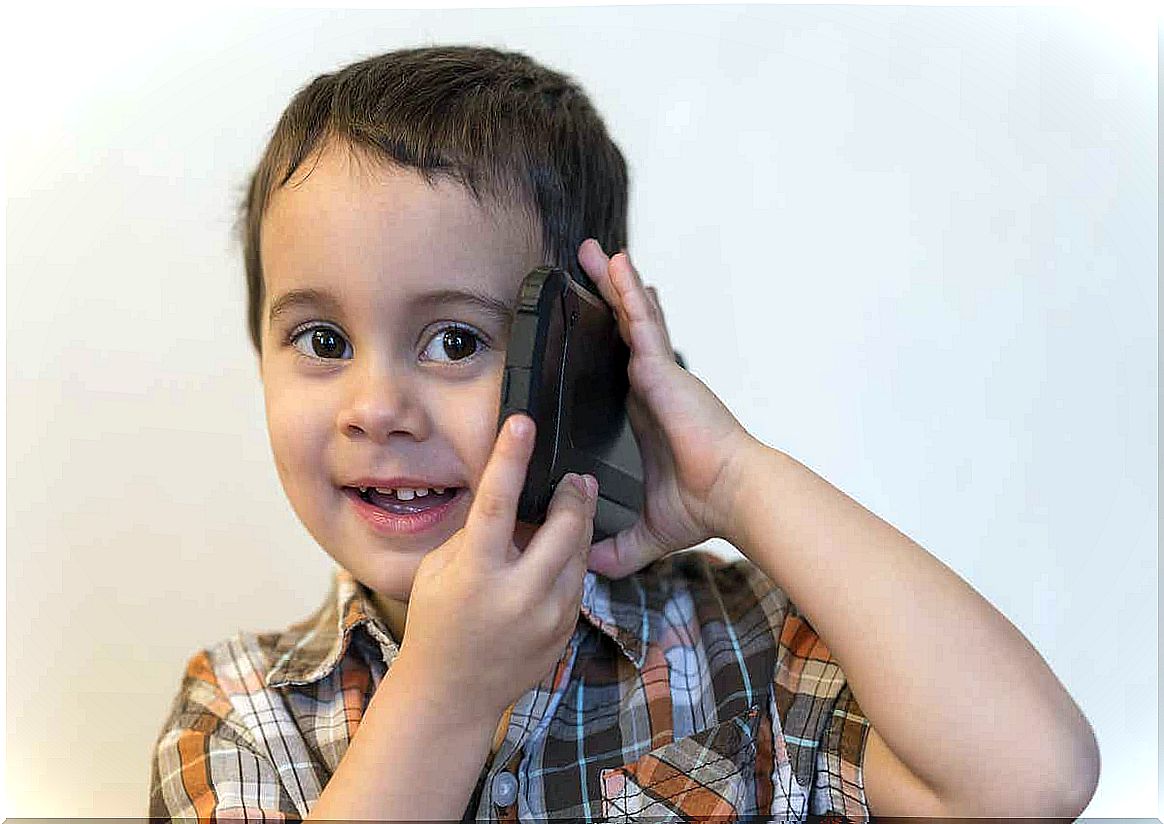
How to talk to children to promote their oral and extended language development
- Always speak slowly and clearly if you want them to understand and learn to vocalize you.
- While it may seem insignificant, it’s important to talk to your child while looking at him and moving at his/her height. This will make them more likely to listen to you and understand you as a result.
- Use familiar vocabulary with familiar words that refer to objects and people in their everyday environment.
- It is essential that you talk and have conversations with the child as much as possible. It is especially helpful to talk to your little one about daily tasks, describe places while walking, read stories, etc.
- Also, you should give them a chance to express themselves, even if you don’t quite understand what they’re trying to say.
- If your child makes a mistake or misspells a word, correct it by repeating the word correctly in a natural way. This way they won’t be frustrated or embarrassed by the way they talk.
Final thoughts on talking to three-year-olds
Both oral language and extended language are naturally learned functions and skills. However, interaction with the social environment is essential, especially with the family, as children learn to speak and understand in their family environment. Later, their language and understanding will grow in other contexts, such as school or other recreational activities.
It is essential to provide high-quality communicative interactions for three-year-olds that allow them to express themselves and communicate. It doesn’t matter if they don’t understand everything we say. It is still important to talk to them and have a conversation with them. This communicative act helps both their expressive and extended language. We also need to give them the opportunity to express themselves, even if we don’t understand what they are saying.
